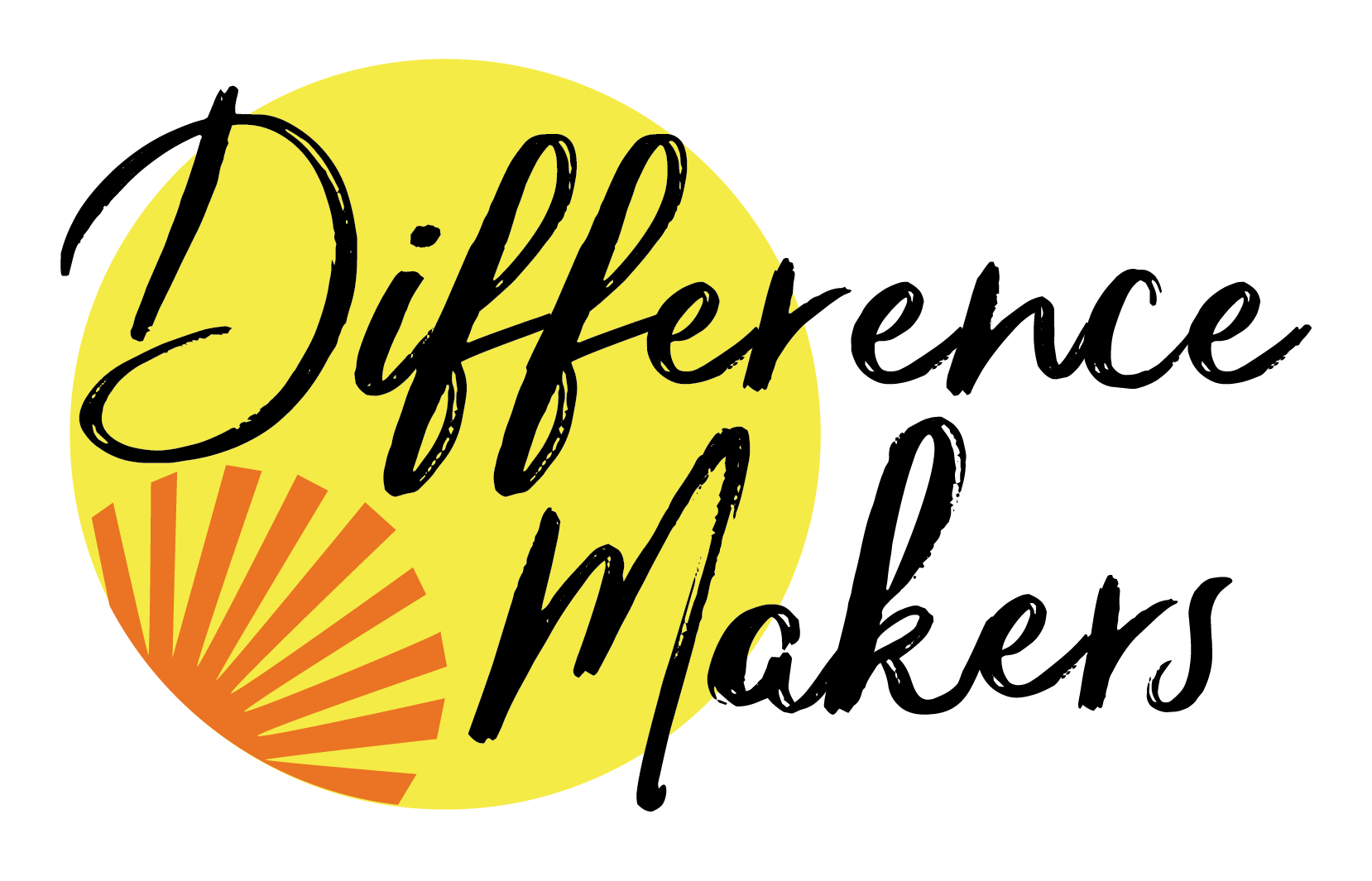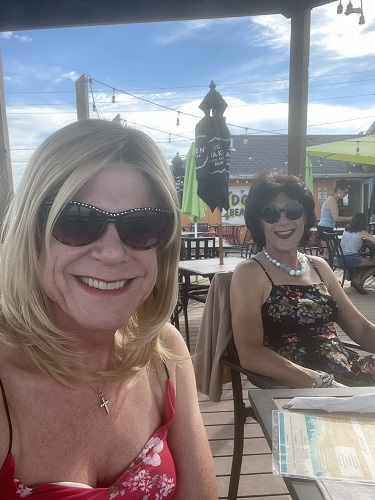We rerun this post, the day after Christmas, my gift to Lisa. This meant a lot to her when we originally ran it.
Grab an eggnog and enjoy!
By Lisa P.
The following is Lisa’s interview of Danielle Healey, who is the subject of the documentary, “Our Dad, Danielle.” She has been a highly successful patent litigator and trial lawyer, author of the book and screenwriter for the 2016 feature film “Leaves of the Tree” starring Eric Roberts and legal advocate for the rights of transgendered people in the State of Texas.
Danielle, what was your childhood like? What do you remember about growing up?
I remember from age 4 knowing that I was female. My cousin Jo was one of my playmates when I was a kid. Her mom and and my mom were best friends, so I would go over to her house, and we played together all the time. I had two lives. When no one was home, I would crossdress. I typically crossdressed every day; otherwise, I did the things that all the other kids my age did. I played soccer, was the school crossing guard, was a paper boy. It was a classic childhood, except no one knows what goes on behind closed doors. I was always into theater and [would] do a little dress up with my friends. Other than being trans, and crossdressing, it was a pretty normal childhood from the outside.
How did you refer to yourself when you first articulated who you were?
I just thought I was a freak. I didn’t know there was anyone else like me. This is back in 1965, ’66, ’67, ’68 — the world was a very different place back then. There was no such thing as transgender. Even being gay was very verboten [German for forbidden] and closeted. There was no Internet. I had no idea…I just thought I was a freak, but somehow I couldn’t not crossdress.
Did you go to the library and try to find books [to understand yourself], since you are such an intellectual person?
Not at that age. But, when I got to Brown [Brown University], I did. I went to the Rock [Rockefeller Library at Brown University], for books and there was nothing on it. There was some old book by that guy Magnus [Hirschfeld, 1868-1935), a person in Berlin who had one of the early gender clinics [Institute for Sexual Science, the world’s first trans clinic, which was a victim of Nazi ideology]. Even in the Rock, which was one of the biggest college libraries in America, there was nothing. And that was 1978, ’79, so there was still nothing! As I got older, I discovered that there were crossdresser-type publications (that were very crudely done) that were typically sold at pornographic bookstores. So. I would go there to look for them, but that just made me feel really low and crappy… [the fact that] I could only find any information if it was buried in the back of a pornographic bookstore just had a very negative connotation.
You talked about coming out to your family in your film, but what was it like coming out to your colleagues at work and to your neighbors?
That was much easier. What happened is that I got to the point where [it] was life or death, and I didn’t have a choice if I was going to stay alive. Coming out to my family, that was the most difficult thing. Putting Becky (Danielle’s wife) through hell, that was horrible, and then I talked to the firm [Danielle’s law firm, Fish & Richardson] and told them in confidence what I was going to do and we made a plan. I came out. The people in my office were generally…everyone…very supportive. They could see how much happier I was, how much lighter I seemed. They were happy for me. I got 300 texts or emails or Facebook messages from people who were very supportive. I got them from all kinds of people…. So, I got a lot of support.
How about Church?
We went to our friend’s funeral [at our own church] — this friend of Becky who passed away was a close friend. Most everybody was very nice, but there were enough people there giving me dirty looks (sort of the evil eye), that I didn’t go up to communion. I didn’t want to take away from the event. So, I just stayed back….Ironically, when I would travel and crossdress, I went to church all the time. That was one of the safe , easy places to go, and a place I could feel good about myself. I wouldn’t go to bars, I would go to church! And, I never had any problem anywhere. Typically, people would be very friendly, very nice and open.
I take it that you had come out to Becky at some point in time, before your daughter saw you — so she knew?
Becky and I had had some communication about it, but not a lot. Basically, it was keep it out of the house, keep it away from the kids. It was a real sore spot of course.… the only reason I transitioned is I had gotten to the point where it was literally life or death. It was that simple. I could either choose life or death, and Becky could either choose for me to be alive or dead. She chose for me to be alive. But, it [being trans] is not anything anyone picks or chooses. Actually, a woman who is a PhD in one of the medical fields did research. She found not many studies…but she did find studies where it is not a choice. Most of the people I know who are trans will tell you they knew they were trans from the time they were four years old, three years old, five years old. When you are four years old, you haven’t learned that behavior, you haven’t made a choice in that behavior. So, it is something you fight against, struggle against. It takes a terrible toll on your self-esteem, because you think you are a freak. I got caught once by my father, and he went crazy, and I was a freak. It was really a bad scene. Your body doesn’t match your brain, and that causes you a lot of physical distress and physical issues in terms of how you feel about yourself [and] what you are doing. You layer on top of that the societal issue and it makes it even more painful. But, to me it is a birth defect, like other birth defects, and it is not my fault, it’s not a choice, and it is not a moral failing. It’s a physical thing that can’t be helped….I am very lucky because before I transitioned I was a very successful, privileged white man, so I could make money, put it away and invest. So, we are OK – we aren’t great, but we are OK.
Now that you have transitioned, do you feel like you are better accepted than before you transitioned?
Before I transitioned, I didn’t go anyplace where I knew I was going to be rejected. So, to say that I was accepted was not an issue, because I wasn’t going anywere I was going to be rejected. The other thing is, if you want to be accepted as a trans person, the first time you walk into a restaurant, put your American Express Platinum Card down — it is instant acceptance. Big women’s clothes stores, they know trans women come in once or twice a year [and] are going to buy a ton of stuff, so they are very welcoming. You are like their customer of the day, because they are going to make a ton of commission off of you. I didn’t go to places where I wouldn’t be accepted. Now, I go everywhere as a transperson.
The places where I didn’t have problems, I still don’t have problems. The places where you might expect to catch some flack, you catch some flack.
Has your faith been a positive [force] for you? What role has it played [in your life]?
I would pray to God as a kid to fix me. Not being fixed – that was disappointing. Then, when I was traveling and crossdressing, church was a haven. I could hang out, go to mass, have coffee after mass or whatever, and it was safe and I was treated well, and having that spiritual foundation was great.
How important has love and acceptance been to you post-transition?
I never could have survived transition if I didn’t have my family. I wouldn’t have transitioned if I didn’t have my wife and kids and if they hadn’t grown and continue to get more supportive, I couldn’t have made it. I would not have transitioned, and probably would be dead by now. My side of the family has been very supportive.
You have done so many wonderful things in your life and you have a lot of things you can be very proud of. Do you have new goals that you are setting for yourself?
I’ve just got to make it [until I] get my oldest daughter through law school and her wedding. That is the main goal. She’s got a good job. She’s going to be a corporate associate….Once she starts work, she is going to have a really good salary and a good job and that will all be good. Then, it will be a matter of getting her off the books and then getting through the wedding stuff (because she just got engaged).
Do you have any words you have to say to someone who is just now coming to terms with being trans?
One thing that I can say is that my whole life I felt like I had this tension between my shoulders. I thought constantly about my gender, just constantly. It was a constant nagging thought. About two months after I transitioned, it hit me that I hadn’t had that feeling or thought about my gender since I transitioned. I will never know what it means to be normal, because I am not normal, but it was the first time…that whole gender thing wasn’t gnawing at me on a constant basis, and I was able to relax.
Finally, is there anything else you want to say?
I think that it is inevitable that every transgender person is going to have to come to grips with who they are, and living their truth, because I think the repression and suppression of your personality and your true nature is very wearing and taxing. It has a very negative effect on you as an individual and on your health. Just like having any big burden or stress does. We need to get society to a place where people don’t have to be suffering. I also think that people who are trans, who have transitioned (transition is very personal thing, how you live and behave after transtiion is a very personal thing), but for people who can deal with being public, they should be public, so that people can see that trans people are just people.
Well said Danielle! We are “just people”! And, if we are people like you, we are people who make a difference.










14 Responses
I wish I could be like you.
James,
Danielle continues to be a friend and inspiration to me. I am “partially transitioned” in that I live sort of half and half these days. I have a rich social life with women friends and traditionally female activities. But I fail Danielle’s test in that I do it as stealth as I can (that is, I don’t tell anyone I am TG) — they may know or not; all I can say is that they treat me the same as everyone else. So, I am coping, even as my wife needs me to remain in the closet to my historical friends, family and colleagues. The logistics drive me crazy. But here is the real point: Danielle continues to tell me NOT to fully transition unless I absolutely must. You can hear words of inevitability in her interview and in Teresa’s comment. Danielle listens to me and says, “you are being you enough to stay alive — keep doing that”. Kandi does that too, I think. The great thing is that there are people and places where we can be ourselves and live joyfully (not every day, of course, but most days). As long as we can survive and thrive, we don’t have to place new burdens on those we love. I sure hope I can stay this way for the foreseeable future.
Thank you for your comment.
Lisa
I wish everybody a Merry Christmas and a Happy New Year.
Thank you James for all of your kind comments!
Kandi….our main difference maker! You are the best of us.
Thank you LP! I wish that were the case, but here I can present the best version of me. Life continues to throw it’s curveballs and challenges at all of us.
You too!
A great interview Lisa. You really got Danielle to explain her life before and after transitioning.
I think we all feel so much more normal when we are free to express our femininity.
Thank you Lisa for great questions. Thank you Danielle for revealing and honest answers. Thank you Kandi for posting it all.
Jocelyn
Jocelyn,
You are so right about feeling normal when we can feel feminine. The smells, the textures, the styles, the whole experience feels so uplifting for ladies like us!
I hope you had a wonderful Christmas.
Lisa
Lisa,
The last paragraph is very true but we may not realise it’s truth until we have adopted a transition life and by then there is usually no turning back . ( Possibly like a chicken and egg situation ) .
To many it is a life or death decision , I nearly ended my life over the the lack of acceptance when i finally knew there was no other road for me .
Possibly the biggest problems we face oursleves and others around us is the whole concept of being transgender is quite abstract , most the turmoil is inside our heads , very few will see or understand fully what we are going through . Wearing clothes that society may frown at is our only visible outlet to our inner situation . Transition isn’t only hormones or surgery it’s also finding inner strength to confidently face the RW to gain acceptance and hopefully normality .
I’m sure to most of us rejection comes close at hand from family and a few close friends , family rejection is the toughest one to deal with . Personally I was married 45 years , we had a son and daughter and then three grandchildren , to lose that contact can be heart breaking . Despite that I still needed to be true to myself because I was barely functioning , I was of little use to myself or my family . Thankfully I have lost little apart from making the right and mutual decision to separate and finally divorce , we are both happier making that choice .
Again many thanks for this article , the only way we can move forward is by reading the experiences of others .
Teresa,
Your experience is so important to hear. I can hear the pain you have experienced in the words you have said. Yet you have also made it clear that you persevered and came through the storm. 45 years is such a long time (I have been married 42 and also have 3 children). The victory for you is being happier, and I am thankful that you can look forward to being fully and authentically you. You are out and you are proud and you make a difference in your own way.
Lisa
Lisa,
i missed your comment in replying to James about ” stealth ” . It’s now ironic that I still have to use stealth but the picture has changed . At one time it would be used to cover my tracks when dressed , that’s obviously not a problem to me now but I’m now in a situation where I can’t mention my ex-wife because so many people accept and treat me me as Teresa . In fact they don’t appear to either know or care if I’m TG , I do talk about my children and grandchildren so do they consider I’m talking as a genuine mother because I’ve never been questioned on that point ?.
I consider it’s not only my victory but also a victory for the trans friends I have known , we all hope we can find happiness in our adopted lifestyle .
Very interesting interview Lisa. Thanks for posting it.
A Happy New Year to you and everyone else here in Kandi’s Land!
Fiona
Fiona,
You are kind. Have a Happy New Year!
Lisa